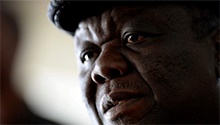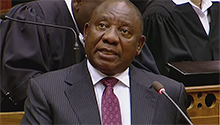"All parents and legal guardians with children registered at the school are eligible for election," said Western Cape education MEC Debbie Schäfer, in the run-up to the elections. All schools across the country are expected to hold the elections.
The South African Schools Act (SASA) gives governing bodies considerable powers to govern schools.
"We therefore urge parents to participate fully in the nomination and election of members to ensure that the school serves the best interests of their children," said Schäfer.
According to SASA, the responsibilities of the governing body include:
- Deciding on an admissions policy for the school;
- Deciding on the language policy of the school;
- Deciding on what religious practices will be followed at the school;
- Formulating the school's constitution and mission statement;
- Formulating the code of conduct for pupils which sets out disciplinary procedures;
- Budget and financial management;
- Recommending staff appointments; and
- Supporting the principal, teachers and other staff.
The term of office is three years.
Parents nominate and elect governing body members at a parents' meeting called by the school for the elections, explained Schäfer.
Parents complete a nomination form which they submit to the school. A nomination must be seconded by another parent and the nominee must accept the nomination before the forms are submitted to the school.
Parents may seek nomination, but not nominate themselves. Parents must submit nominations at least seven days before the election meeting.
Teachers, non-teaching staff and pupils nominate and elect members at similar meetings. Schools will provide school communities with all relevant information.
A quorum of 10% is required for the nomination and election meeting – for example, at least 50 parents must attend if the school has 500 parents on its admissions register.



























